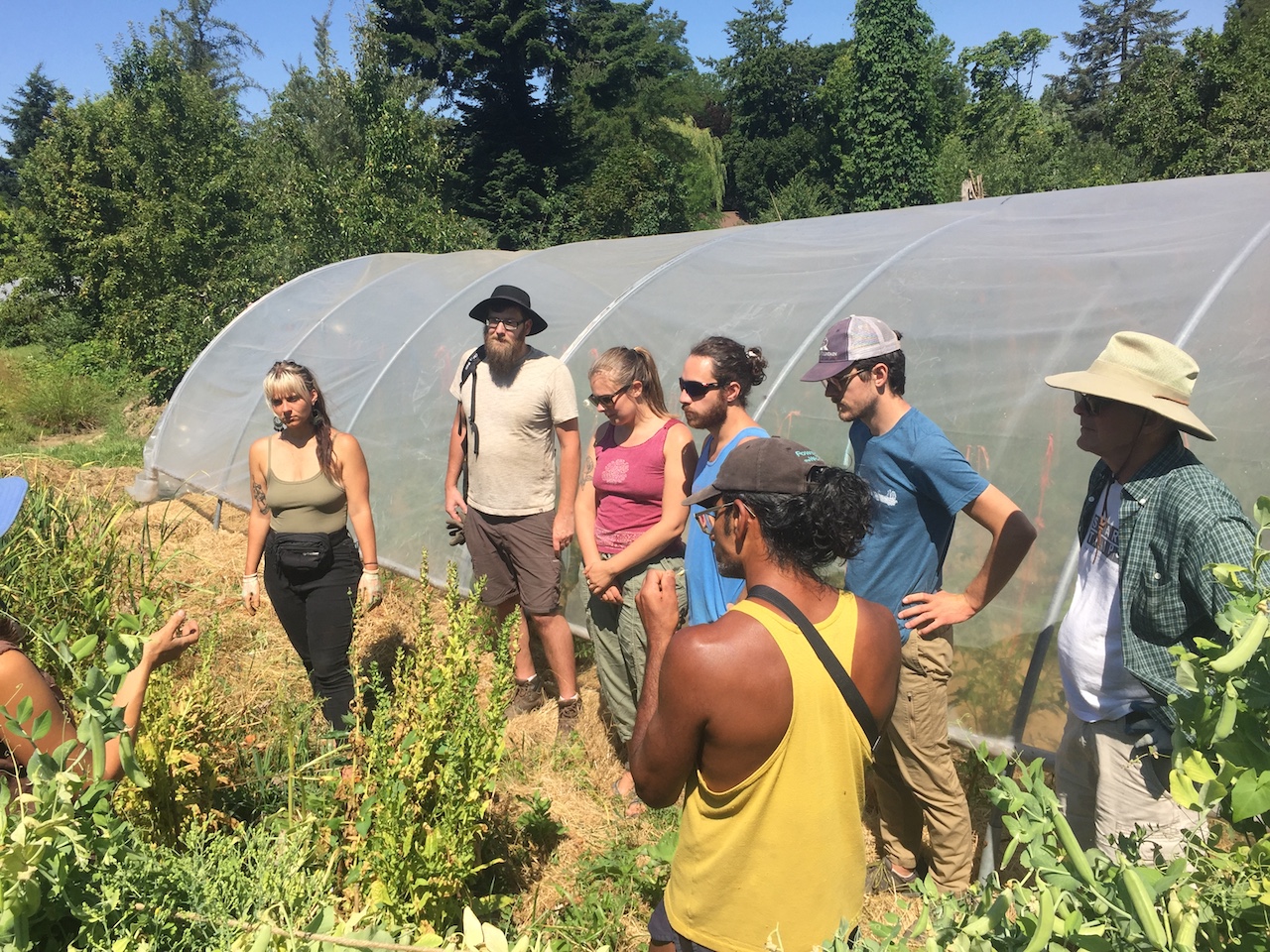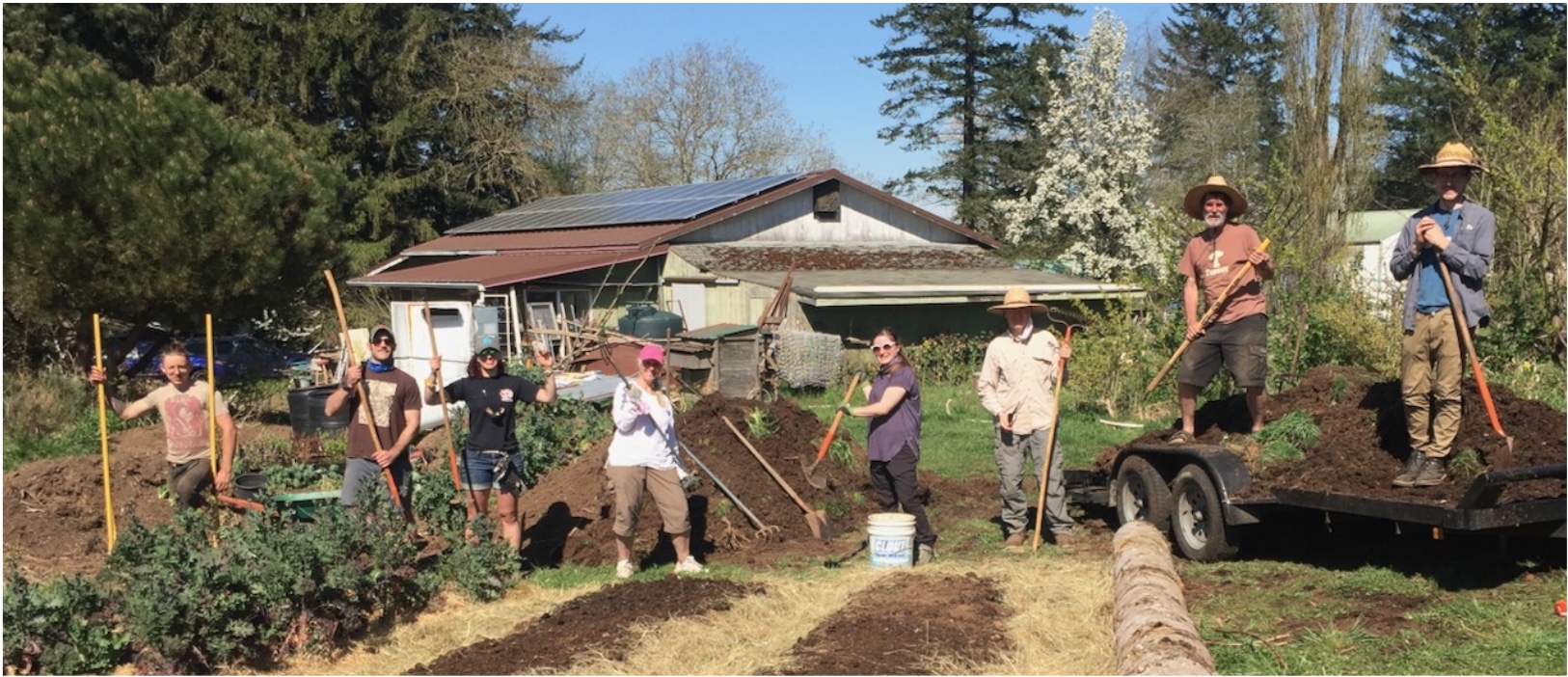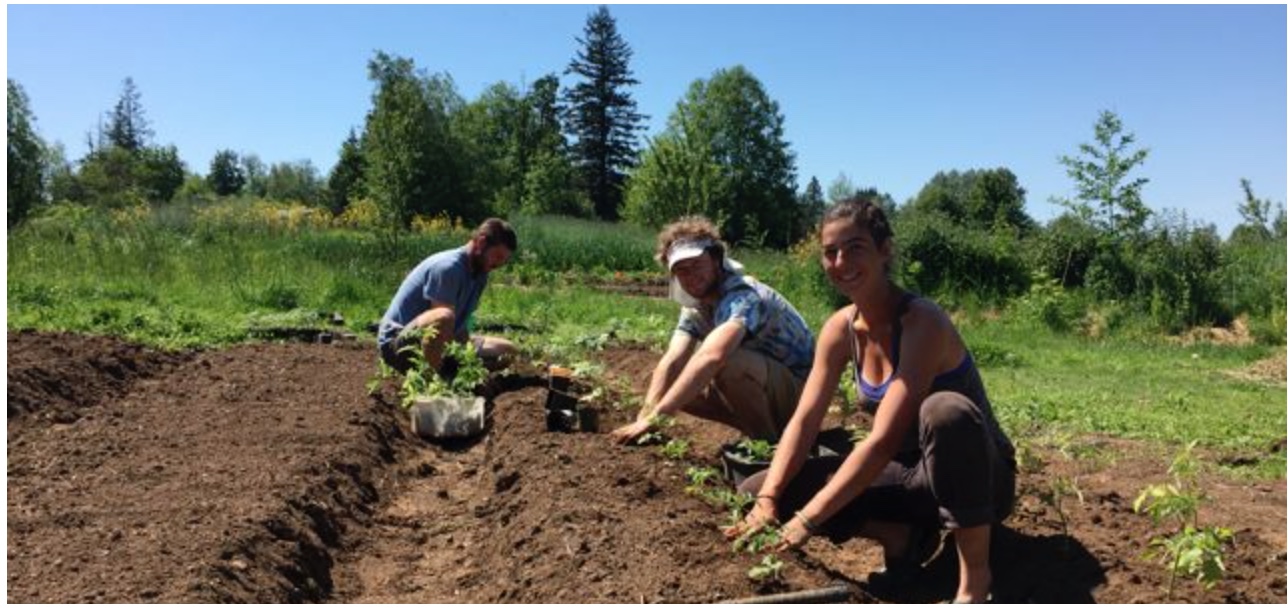Salish Seed Guild
by Nichole Schmitt
Since the dawn of human civilization, seed saving has been critical to the survival of humanity. Seeds were precious heirlooms to pass on to the next generation. In times of crisis when communities fled or relocated, seeds were among the top treasures to take along. Seeds mean food and the preservation of culture.
In modern times, however, large corporations have taken ownership of the seed industry. Seed saving is no longer seen as a duty and responsibility of individuals and communities. We’ve been leaving it up to the monopolistic seed companies to develop and patent seeds for large monoculture farms. But the climate crisis reminds us that one size seed does not fit all.
There is now a rising movement around the world to develop and save seeds in traditional ways. Sometimes, people actually have to fight court battles to preserve this right. Scientific strengthening of seeds has its place, but nature has owned this process for much longer. Over multiple generations, plants adapt and become resilient for the environment and climate where they are raised. In turn, their seeds become hardy and suited for continuing the species in that particular environment.
Inspiration Farm
This natural method is used by farmers like Brian Kerkvliet of Inspiration Farm on East Laurel Road. For over two decades, his permaculture farm has been developing and saving seeds suited for Whatcom County. Besides selling the produce from his farm, Kerkvliet also co-sponsored, along with Krista Rome, a seed saving club called the Salish Seed Guild.
According to salishseed.org, their mission is “to honor the biodiversity of seeds grown in our local food shed and to encourage the caretaking of genetic seed diversity for future generations.” As I interviewed Mr. Kerkvliet this spring, members of the guild were volunteering twice weekly to sow seeds and tend plants at Inspiration Farm. The gardens and training opportunities are being hosted at Inspiration Farm until a suitable public site is arranged. The guild invites anyone to participate. In exchange for a little manual labor, volunteers gain precious knowledge about permaculture, seed stewardship, and climate resiliency through plant husbandry.

Threshing our first grains and Krista Rome talking about winnowing seed to clean it
photo: Brian Kerkvliet.
On that rainy day in May, while two volunteers constructed a large teepee of bamboo poles for heirloom beans, Mr. Kerkvliet explained how the Salish Seed Guild works. The organization of volunteers operate under the umbrella of Sustainable Bellingham, a 501(c)(3) nonprofit. Their aim is to bring communities together with a focus on creating resiliency and abundance through education. Anyone can request to participate. In time, they hope to influence the majority of farmers and gardeners in this county to save at least some of their seeds instead of buying entirely new seeds each year. To that end, the guild continues to increase knowledge in our community.
Harvesting Seeds
As we are deep in fall now, Mr. Kerkvliet and team are harvesting seeds and carefully saving them. Volunteers are learning time-tested methods for harvesting, packaging, and storing seeds. In spring, there will be several seed swap opportunities. Before Covid, the seed swap events were in person. But, throughout the pandemic, the seed swaps have been more like a self-serve lending library. Their seeds have been distributed all over the county via food banks, local tribes, other community organizations serving low-income populations, the farmers’ market, and free bins at local retail outlets. A full list of sites can be found online at SalishSeed.org.
As the pandemic was in full swing, many more people started gardening at home. Seed companies quickly and unexpectedly sold out. This underscored the need for more local sources for seeds. If you are a gardener, you look forward to January when the seed catalogs arrive in the mailbox — am I right? With a hot tea and a seed catalog on your lap, you will look out at the snow and daydream about the garden you plan for next year. While you daydream, please also check out SalishSeed.org. Show up for a volunteer day in spring. You will come away with invaluable training and bundles of seeds for your own garden — ones that have been raised right here at home.
__________________________
Nichole Schmitt has had a 20-year career in technology. Now she teaches and writes curriculum for an online college. She homeschools two small children. In her spare time, she enjoys learning and writing about issues facing our local ecology and community.




